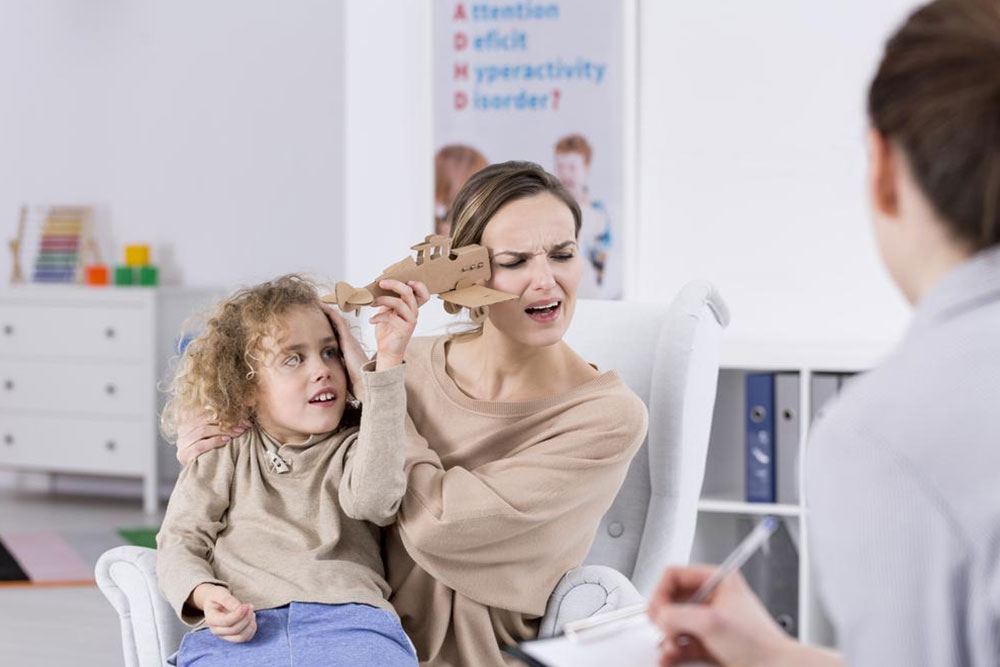Comprehensive Guide to Adult ADHD: Symptoms, Diagnosis, and Effective Management Strategies
This comprehensive guide explores adult ADHD, covering symptoms, diagnosis processes, natural management techniques, medication options, and daily strategies. It emphasizes early detection and personalized treatment plans to improve life quality, offering practical advice for adults living with ADHD. By integrating lifestyle changes and medical interventions, individuals can better manage symptoms and achieve greater focus, organization, and emotional balance in their daily activities.

Comprehensive Guide to Adult ADHD: Symptoms, Diagnosis, and Effective Management Strategies
In-Depth Insights into Adult ADHD
Attention Deficit Hyperactivity Disorder (ADHD) is widely recognized as a neurological condition primarily diagnosed in children. However, it is increasingly evident that many adults continue to grapple with its symptoms long after childhood. Interestingly, adult ADHD often remains underdiagnosed, especially in cases where symptoms were subtle or unnoticed during a person's formative years. This oversight can lead to ongoing challenges in personal relationships, professional environments, and daily functioning. Recognizing the signs early and understanding how to effectively manage symptoms such as chronic forgetfulness, inattentiveness, impulsivity, and difficulty maintaining focus is key to leading a balanced, productive life.
Understanding How Adult ADHD is Diagnosed
Diagnosing adult ADHD requires a comprehensive evaluation by a qualified mental health professional, typically a psychiatrist or psychologist experienced in adult neurodevelopmental disorders. The diagnostic process is meticulous, aiming to distinguish ADHD symptoms from other mental health issues or medical conditions. Important steps include:
Conducting thorough physical examinations to rule out other physical health problems that may mimic ADHD symptoms
Administering psychological assessments and standardized questionnaires to evaluate attention, impulsivity, and hyperactivity levels
Ordering blood tests or other medical tests to exclude conditions like thyroid issues or neurological disorders
Collecting detailed personal and family medical histories, as ADHD has a strong genetic component and often runs in families
Reviewing the individual's lifestyle, academic, and work history to identify patterns consistent with ADHD
Family history plays a crucial role because if close relatives have been diagnosed with ADHD, it increases the likelihood of adult manifestation. Accurate diagnosis is vital for tailoring an effective treatment plan that improves quality of life.
Natural and Lifestyle Methods to Manage Adult ADHD
While medication often plays a central role in adult ADHD management, incorporating natural approaches and lifestyle modifications can significantly enhance overall effectiveness. These strategies aim to reduce symptoms and improve daily functioning naturally. Key methods include:
Avoidance of Preservatives and Artificial Additives: Consuming unprocessed, natural foods can reduce hyperactivity and impulsivity. Food coloring, preservatives, artificial sweeteners, and sugary snacks like candies, sodas, and processed chips may exacerbate symptoms. Choosing whole, organic foods supports better concentration and emotional stability.
Engaging in Mind-Body Exercises: Practices such as yoga, tai chi, or qigong foster relaxation, improve focus, and alleviate anxiety. Regular participation in these gentle exercises can help regulate hyperactivity, enhance mood, and promote mental clarity.
Identifying and Limiting Dietary Allergens: Food sensitivities or allergies may trigger behavioral issues. Consulting a healthcare provider for allergy testing and eliminating problematic foods may lead to improved attention span, mood stability, and reduced impulsiveness.
Supplementing these natural techniques with medical treatment can lead to a significant reduction in ADHD symptoms and support overall well-being.
Medication Options for Adult ADHD Treatment
Medical interventions are often necessary for optimal symptom control. Treatment plans are customized based on individual needs, combining medications and behavioral therapies. The main medication categories include:
Stimulant medications such as Dexmethylphenidate (Focalin), Amphetamine-based drugs like Adderall (Adderall XR), Dextroamphetamine (Dexedrine), Methylphenidate (Ritalin, Concerta), and Vyvanse. These are highly effective but require careful monitoring due to potential misuse or dependency risks.
Non-stimulant options like Atomoxetine (Strattera), Clonidine (Kapvay), and Guanfacine (Intuniv) serve as alternatives especially for individuals who experience side effects or have contraindications to stimulants.
Working closely with a healthcare provider ensures optimal medication management, balancing benefits with possible side effects.
Daily Strategies for Managing ADHD Symptoms Effectively
Incorporating certain habits into daily routines can significantly improve symptom management. Practical strategies include:
Deep, Slow Breathing Exercises: Practicing diaphragmatic breathing or mindfulness techniques can help reduce impulsivity, manage frustration, and decrease anxiety levels.
Maintaining Organized Systems: Using planners, digital calendars, reminders, and checklists helps reduce forgetfulness and prevents tasks from becoming overwhelming. Regularly decluttering physical and digital spaces also supports mental clarity.
Physical Activity: Engaging in regular exercise such as walking, running, swimming, or team sports can channel excess energy, improve focus, and elevate mood. Physical activity not only benefits physical health but also supports mental resilience.
In conclusion, managing adult ADHD effectively requires an integrated approach that combines medical treatment, lifestyle modifications, and personalized strategies. Early intervention and consistent management can empower adults with ADHD to lead fulfilling, successful lives, minimizing disruptions and enhancing productivity and emotional stability.





